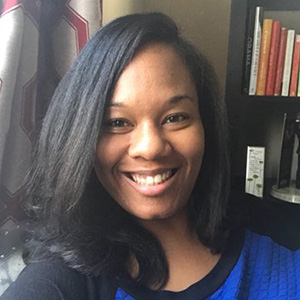
As a project PI, have you ever glanced at an evaluation report and wished it has been presented in a different format to be more useful?
As an evaluator, have you ever spent hours working on an evaluation report only to find that your client skimmed it or didn’t read it?
In this second part of the conversation, a Principal Investigator (client) interviews the independent evaluator to unearth key points within our professional relationship that lead to clarity and increased evaluation use. This is a real conversation that took place between the two of us as we brainstormed ideas to contribute to the EvaluATE blog. We believe these key points: understanding of evaluation, evaluation reporting, and “ah ha” moments, will be useful to other STEM evaluators and clients. In this post, the principal investigator (PI)/client interviews the evaluator and key takeaways are suggested for evaluation clients (see our prior post in which the tables are turned).
Understanding of Evaluation
PI (Manu): What were your initial thoughts about evaluation before we began working together?
Evaluator (Ayesha): “I thought evaluation was this amazing field where you had the ability to positively impact programs. I assumed that everyone else, including my clients, would believe evaluation was just as exciting and awesome as I did.”
Key takeaway: Many evaluators are passionate about their work and ultimately want to provide valid and useful feedback to clients.
Evaluation Reports
PI: What were your initial thoughts when you submitted the evaluation reports to me and the rest of the leadership team?
Evaluator: “I thought you (stakeholders) were all going to rush to read them. I had spent a lot of time writing them.”
PI: Then you found out I wasn’t reading them.
Evaluator: “Yes! Initially I was frustrated, but I realized that maybe because you hadn’t been exposed to evaluation, that I should set up a meeting to sit down and go over the reports with you. I also decided to write brief evaluation memos that had just the highlights.”
Key takeaway: As a client, you may need to explicitly ask for the type of evaluation reporting that will be useful to you. You may need to let the evaluator know that it is not always feasible for you to read and digest long evaluation reports.
Ah ha moment!
PI: When did you have your “Ah ha! – I know how to make this evaluation useful” moment?
Evaluator: “I had two. The first was when I began to go over the qualitative formative feedback with you. You seemed really excited and interested in the data and recommendations.”
The second was when I began comparing your program to other similar programs I was evaluating. I saw that it was incredibly useful to you to see what their pitfalls and successful strategies were.”
Key takeaway: As a client, you should check in with the evaluator and explicitly state the type of data you find most useful. Don’t assume that the evaluator will know. Additionally, ask if the evaluator has evaluated similar programs and if she or he can give you some strengths and challenges those programs faced.

Except where noted, all content on this website is licensed under a Creative Commons Attribution-NonCommercial-ShareAlike 4.0 International License.






 EvaluATE is supported by the National Science Foundation under grant numbers 0802245, 1204683, 1600992, and 1841783. Any opinions, findings, and conclusions or recommendations expressed on this site are those of the authors and do not necessarily reflect the views of the National Science Foundation.
EvaluATE is supported by the National Science Foundation under grant numbers 0802245, 1204683, 1600992, and 1841783. Any opinions, findings, and conclusions or recommendations expressed on this site are those of the authors and do not necessarily reflect the views of the National Science Foundation.